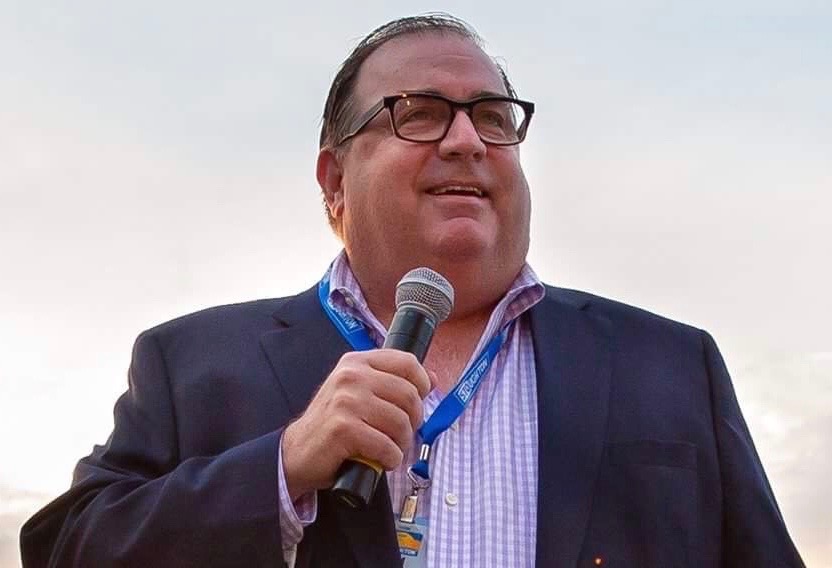
Ahead of his Time
Just shy of a decade ago, Treatment Magazine had a similar conversation with a guy who, it’s clear now, wasway ahead of the curve. He was just then opening a center near Austin in Texas and telling us, prophetically,”I wasn’t getting any younger.” Of course we’re talking about the late, great Mark Houston who was then eager to get his non-clinical recovery retreat concept, Mark Houston Recovery Centers flying and off the ground.
“Such a Visionary”
“Mark was such a visionary,” says Marsha Stone, who is now the CEO of Benchmark Recovery Center, the renamed, and under new ownership, former Mark Houston Recovery Centers. Houston passed suddenly in 2010 and his silent 50 percent partner whose name Houston never did reveal – as well as Houston’s heirs sold the whole operation in early 2011 to a Texan named Wayne Kinsey. From the oil and chemicals world, Kinsey’s motivation in buying the center was a typical one in the treatment business. “Wayne had experience with family and friends who had problems with addiction. He could afford to get involved, liked what he saw and bought the center,” says Stone.
Regulatory Arbitrage
 The whole idea behind Benchmark, and what Houston had, was and remains a kind of regulatory arbitrage. Benchmark provides those who have been to treatment before an alternative to returning to primary care, get the expenses down by avoiding providing what for many were becoming highly repetitive treatment services and then lengthen the stay. Most of the savings coming from avoiding licensure expense made the longer stay at lower cost possible and only someone with Houston’s impeccable statewide reputation could pull the whole thing off, having worked as he had for many decades in Lone Star state treatment circles.
The whole idea behind Benchmark, and what Houston had, was and remains a kind of regulatory arbitrage. Benchmark provides those who have been to treatment before an alternative to returning to primary care, get the expenses down by avoiding providing what for many were becoming highly repetitive treatment services and then lengthen the stay. Most of the savings coming from avoiding licensure expense made the longer stay at lower cost possible and only someone with Houston’s impeccable statewide reputation could pull the whole thing off, having worked as he had for many decades in Lone Star state treatment circles.
Private Pay
Of course, if Benchmark is non-clinical extended care, whose model is based on avoiding the expense of becoming licensed as a treatment center, it cannot expect to bill insurance companies for treatment services and thus its revenue model is one that is based entirely on cash-out-of-pocket, private pay. And while the cost does come down, Benchmark still charges $12K a month, the model also requires a large commitment from family and employers, if such are involved with a client, because the model has as its basis a request that the client put aside a minimum commitment of 90-days. But Stone says Benchmark has a strong alumni network that helps her fill the center’s 50 or so beds. The importance of the alumni network to the success of Benchmark was apparent as Stone prepared in mid-October for a big alumni event, and not just because alumni are responsible for some 50 percent of referrals, according to Stone. It’s very important too because it gives the alumni the chance to give support to one another and remain in closer contact, because working the 12-Steps of Alcoholic Anonymous is a dynamic process requiring continual daily attention, just like any other chronic disease might most of the time require daily intervention of some sort.
New Downtown Apartments
And for Stone any alumni event right now is particularly exciting, and one can feel it in her voice as she explains the new additions to the center that have just recently come online as a result of new investment by Wayne Kinsey in Downtown Austin apartments, of course gender specific. The number of beds in the new apartments is similar to the slightly more than 50 at the ranch property developed by Mark Houston, because the new apartments are for those who have completed the 90-days that Benchmark’s own website refers to as the 90-day “residential program.”
Sober Living
The main addition that Stone has brought since she took over leadership just a few years ago is the 90-day sober living addition to the 90-day “residential program,” as well as and aftercare monitoring and coaching service called the “Segue Program.”
 Chronic Disease Model
Chronic Disease Model
What emerges finally is an attempt at taking the client through a very long-term process that immerses them into the 12-steps for a period of 90-days on a 70-acre ranch, then steps them down to structured sober living and thenprovides coaching and in-house monitoring that provides the chronic disease model coverage for the client in which Benchmark believes so strongly and is at the very root of their philosophy. The issue is that pretty much everyone in the addictions field also believes that the substance abuse problem is a chronic disease, includingthe most powerful providers like CRC, Hazelden, Caron and on and on. And they have made practically zero headway in convincing insurance companies to treat the problem as a chronic one, much less pay for it.














